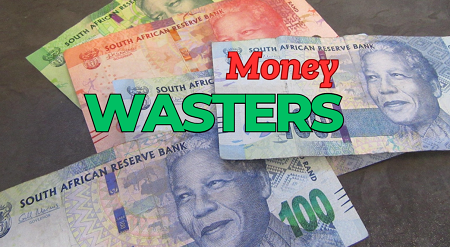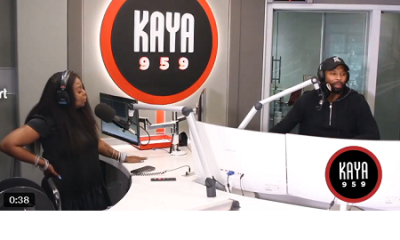Lifestyle
5 Things South Africans Waste the Most Money On ( And How to Stop! )

Like every other place in the world, South Africa is not exempt from the economic hardship affecting daily life. The financial squeeze has left many people caught in a cycle of struggle and sacrifice. Yet, despite the growing cost of food, rising petrol prices, and the never-ending load shedding that constantly disrupts businesses, many South Africans are still spending money carelessly—often on things that don’t even matter in the long run. While some people are learning to manage their money better, others are falling into traps that drain their hard-earned income without them realizing it.
Below we will highlight 5 common money wasters many South Africans don’t know exist (And How to stop)
1. Data and Airtime Drain through Social Media Use
One of the biggest silent money wasters is data and airtime. A lot of people don’t realize how much they’re spending just by staying active on WhatsApp, Instagram, Telegram, YouTube, and other social media apps.
These apps consume not only your time but also your data bundles. In fact, according to research by GeoPoll, the average South African spends between R100 to R500 monthly on mobile services, including data and airtime. When you break it down, someone using R10 to R20 per day just to stay online can end up spending between R300 to R600 a month. That’s a huge cost for something that disappears in minutes.
Best Advice Here is: Turning off autoplay, using Night Owl or scheduled bundles, and making use of free Wi-Fi hotspots can help stretch your airtime.
2. Overreliance on Takeaways and Fast Food
Another habit that chips away at people’s finances is the obsession with ordering takeaways. South Africans love food—it’s a big part of our culture. But that love becomes expensive when you’re constantly ordering fast food just to save time or avoid cooking.
After a long day, it feels easy to just order a burger or chicken wings, and while it might seem like a smart shortcut, doing this two or three times a week at R70 to R100 per meal adds up quickly. By the end of the month, you may have spent over R1,000 just on meals that don’t even keep you full for long. A smarter way would be to reserve takeaways for weekends and start batch cooking on Sundays, storing meals for the week ahead.
3. Unused or Multiple Streaming Subscriptions
Subscription services are another trap many people fall into without realizing it. We all love to relax and catch up on our favourite shows—whether it’s Netflix, Showmax, DStv, YouTube Premium, or streaming music on Spotify and Apple Music. But it’s very easy to sign up and forget that these subscriptions cost money. Most of them automatically renew every month, and if you’re not careful, you could be spending R400 to R700 monthly on services you barely use.
Before you know it, money you didn’t plan to spend is quietly being deducted from your account. Doing a subscription audit—checking which platforms you rarely use and canceling them—can save a lot. Consider rotating services monthly or sharing family plans to reduce costs.
4. Trying to Keep Up with Fake Lifestyle Pressures
Lifestyle pressure is another major money drainer in South Africa today. Because of social media, many people feel the need to appear successful, even when they’re struggling behind the scenes. They go out of their way to buy flashy clothes, post drinks at expensive lounges, or throw over-the-top birthday parties just to impress followers. The sad truth is, a lot of what people post online is not their real life. But trying to match that fake lifestyle can leave you broke and frustrated.
Living to impress others will only keep you stuck in debt, with nothing to show for it except some likes and comments. It’s far better to focus on long-term goals like starting a side hustle, building savings, or investing in something meaningful.
5. Impulse Buys at Spaza Shops
Finally, one of the sneakiest ways people waste money daily is through impulse buying at spaza shops. You may think grabbing a chocolate bar, chips, or cold drink for R20 here and there doesn’t matter. But when you do this every day, those small expenses pile up. You walk into the shop for bread and come out with unnecessary extras—airtime, sweets, snacks—spending R50 instead of R15. Do that daily, and you could easily waste R600 to R1,500 per month. That’s enough to stock your pantry with groceries or start a small emergency fund. To avoid this, it helps to shop in bulk weekly, carry less cash, or stick to a fixed snack budget.
At the end of the day, life in South Africa may be hard, but it doesn’t mean you have to make it harder for yourself. You don’t need to earn more to save more—you just need to start spending smarter. Cut out the waste, rethink your daily habits, and take charge of your financial future.












